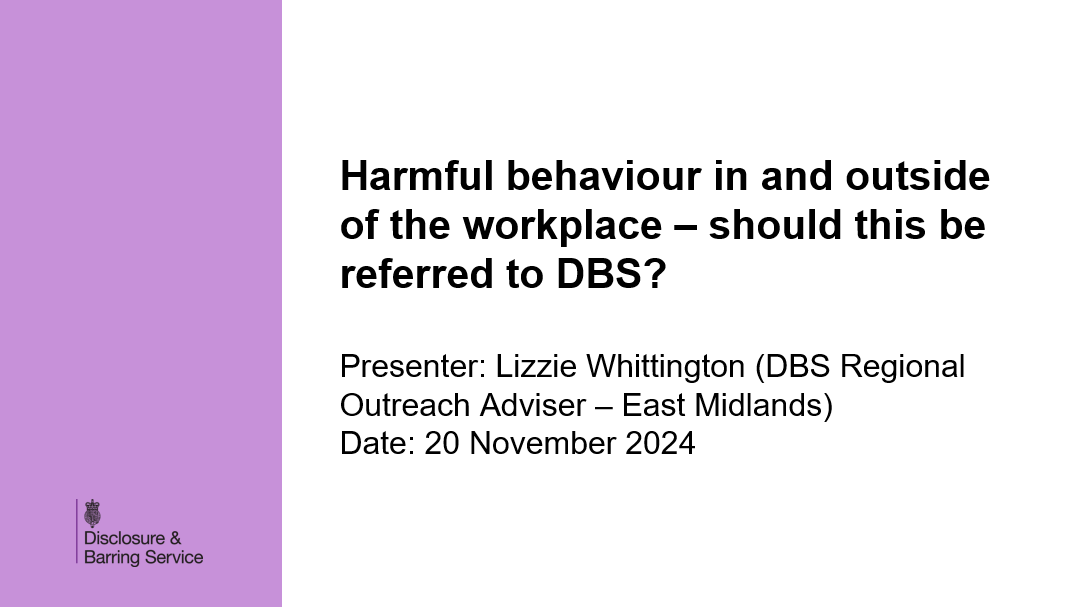
Below is a short summary of a session Lizzie Whittington from DBS ran at the 2024 Safeguarding Adults Conference in Nottingham.
When is it right to make a referral to DBS?
When looking at behaviour outside the workplace, transferable risk of harm is key. Harmful behaviour outside the workplace can cause a transferrable risk.
For example, if someone is accused of domestic abuse, bullying, or sexual harassment, should they be able to support people professionally? Consider theft, too, as adults at risk are more likely to be victims of theft. We also have to think about social media activity. If someone expresses certain views online, does it mean they’re more likely to cause harm in the workplace?
Types of DBS Referral
- Discretionary is the standard type – through employers, agencies and supervisor authorities.
- Autobar is tied to convictions.
- Disclosure information – a enhanced check, only where necessary.
Nothing is automatic, not even autobar. Whenever you make any type of referral, case workers will be able to see whatever information you submit. The person concerned will also be able to defend themselves, and to provide their own version of events.
The DBS Barred List
67,987 people in the UK are on the adults’ barred list.
While it is indefinite, you can appeal.
DBS is mindful that they may not be getting as many referrals as they should be.
Regulated Activity
You are part of a regulated activity even if you only do the type of work once, and even if you are only planning on doing it as part of your role.
Types of regulated activity include:
- Healthcare
- Personal care
- Social work
- Assistance with the day-to-day running of an adult’s household, including their finances
- Conveying an adult from place to place
DBS classifies “prompting” as regulated activity, too. For example, if you prompt an adult to take medication in a professional capacity, without necessarily administering the medication yourself.
The biggest challenge for organisations is knowing what laws apply to you, and what sort of referral you might need to get.
If you’re not sure, get in touch with DBS. The regional outreach service is here to help you.
